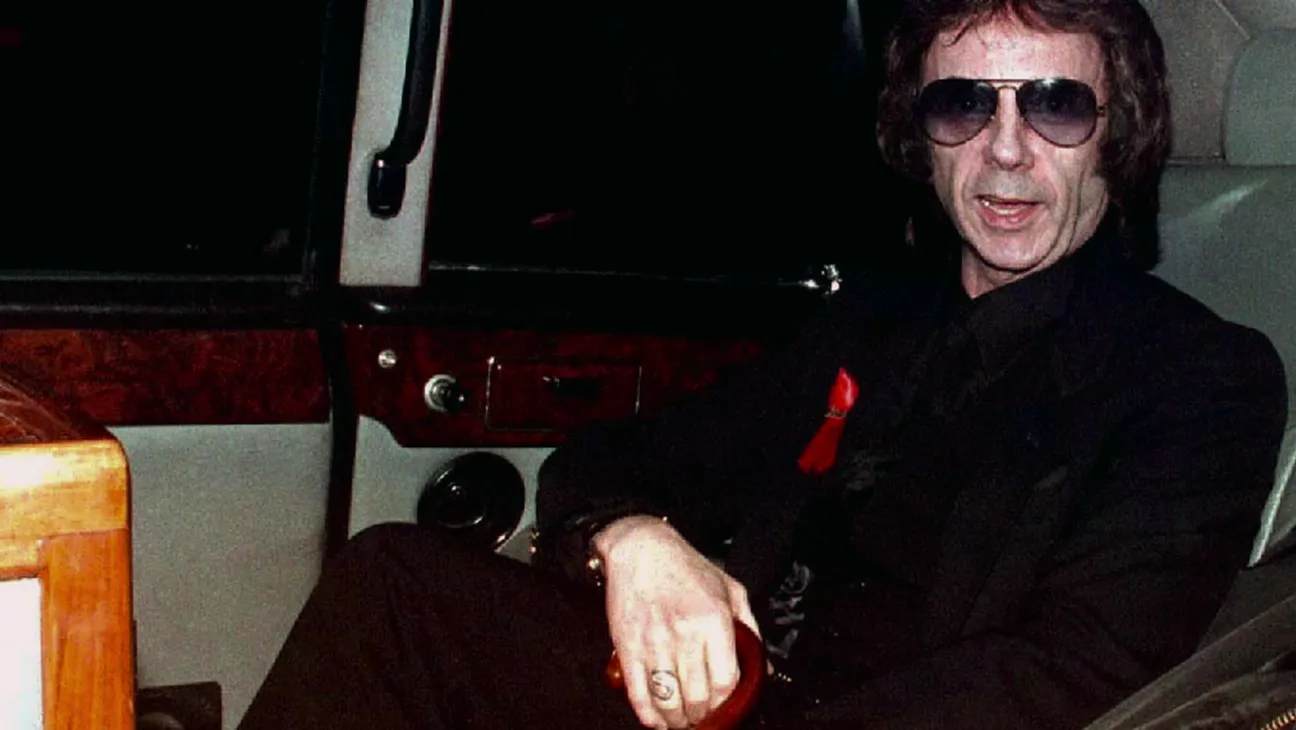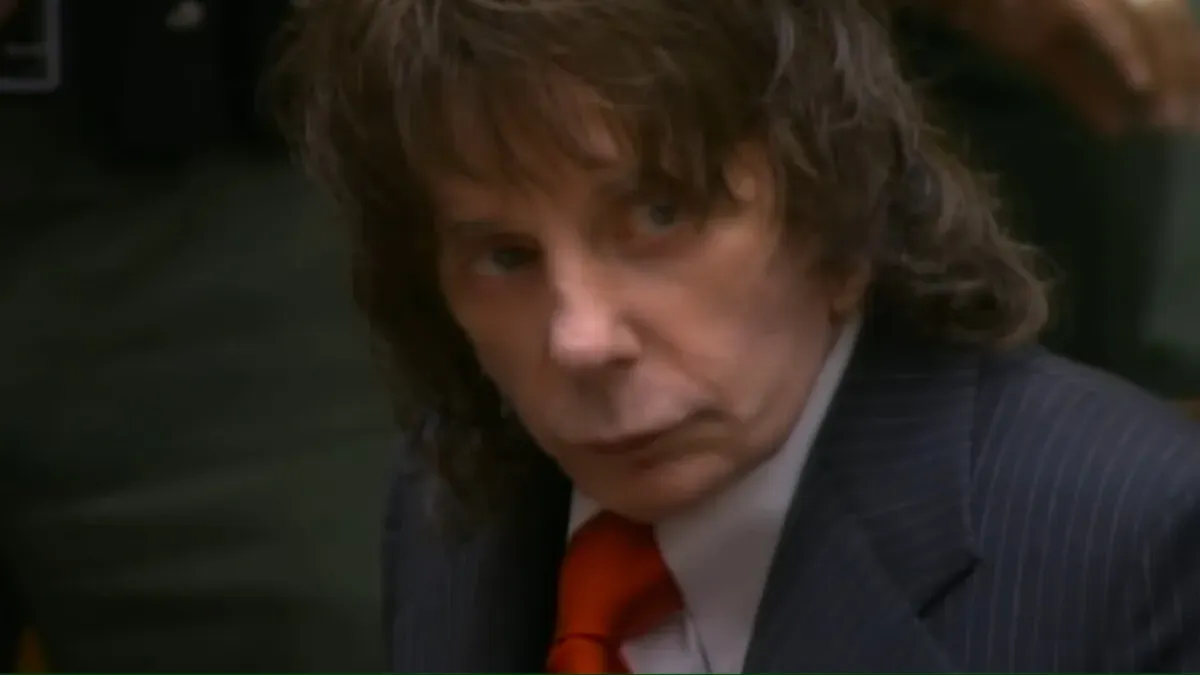Homicide: Los Angeles casts its lens over a string of disturbing yet fascinating crimes that shook Los Angeles to its core. Across five gripping episodes, the docuseries takes deep dives into some of the most notorious murder investigations the city has ever seen. We learn the chilling details of what transpired from the perspectives of those who were at the center of bringing the perpetrators to justice.
The first case examined is that of music legend Phil Spector and the mysterious death of actress Lana Clarkson at his mansion. We’re guided through the complicated process of gathering evidence and building a case against such an influential figure.
We also hear of tragic events like the brazen murder of celebrated race car driver Mickey Thompson and his wife, as well as the disappearance of a politician’s daughter that left more questions than answers. Whether exploring the lives lost, the ensuing police work, or the trials that followed, each story brings added layers of intrigue.
Some cases had evaded closure for decades but continued to haunt the city. The documentary looks at those responsible for heinous acts that long went unsolved, from prolific serial killers to rapists who escaped punishment for far too long. It acknowledges how even in the bright lights of Hollywood, darkness can fester in an urban sprawl as vast as LA. Throughout, the human toll of such violence is remembered.
By honing in on these true-crime tales of people driven to extremes, Homicide: Los Angeles shines a light on Los Angeles in a raw, unflinching manner. It reveals both the city’s underbelly and those devoted to carrying out justice, no matter how elusive or high-profile the target.
Investigating Intricate Incidents
Across its five gripping episodes, Homicide: Los Angeles casts its lens over a string of chilling cases that unearthed far more than one might expect. The first centers on music legend Phil Spector and the mysterious death of actress Lana Clarkson at his hilltop mansion in 2003. With Spector’s volatile persona and the circumstantial evidence gathered, this became no easy undertaking for authorities.
Next we learn of retired race car driver Mickey Thompson and his wife being slain in the couple’s driveway in 1988. The double homicide left law enforcement with many suspects but few answers for quite some time. Veteran detective Mark Lillienfeld played pivotal roles in both the Spector and Thompson cases years apart, demonstrating his keen skills.
Episode three profiles the bizarre disappearance of gifted musician David Carpenter from a Southern California beach in 1995. Was it foul play or something more sinister? The probe unearths unsettling truths about the rising political star’s personal life.
In the fourth episode, we explore the notorious “Hollywood Rapist” crimes that shook the industry throughout the 1980s. Over 30 women were targeted in seemingly random attacks, remaining unsolved for decades and leaving an entire community fearful.
The season finale revisits an evil presence in Los Angeles: Charles Ng, dubbed the “Scorecard Killer.” Alongside accomplice Leonard Lake, over a dozen murders occurred on their secluded ranch, not uncovered for some time.
By delving beneath sensational surfaces, the documentary offers new dimensions to these notorious investigations and those at the heart of solving history’s most complex crimes.
Telling True Crime Through Those Who Lived It
Homicide: Los Angeles takes an insightful approach in recounting these crimes through the eyes of those at the center of bringing the perpetrators to justice. It adopts a “law and order” lens, exploring each case solely from the perspective of investigators and prosecutors. Rather than sensationalized reenactments, the focus is on first-person interviews and real archival materials.
Through discussions with the central figures, the show aims to emphasize their humanity. Viewers see how deeply these public servants invested themselves in securing answers for victimized communities. We witness the personal toll that accumulated over decorated careers confronting humanity’s darkest deeds.
Certain experienced voices, like detective Mark Lillienfeld, provided consistently gripping testimony due to their involvement in multiple high-profile cases across decades. Hearing his assessment of the Spector and Thompson investigations proves all the more fascinating given the considerable time gap between incidents.
When compared to Season 1’s New York setting, this installment keeps production sharply focused on intimate dialogue. There’s rarely a need for recreations thanks to the emotive real-life recollections. Less emphasis is put on dramatized elements so audiences engage more with lived experiences of those who wore the proverbial “blue wall.”
By prioritizing authentic first-hand sources rather than theatrical flourishes, Homicide: Los Angeles succeeds in bringing a raw, unvarnished presence to some of the most notorious crimes in Tinseltown history and those steadfast public servants who worked tirelessly to solve them.
A Gripping Debut, And More
The momentum generated by the gripping premiere episode “Hunting Phil Spector” sets an extremely high bar for the rest of the season. Delving into the bizarre death of Lana Clarkson, viewers are instantly hooked by the complex web of circumstances.
We see how meticulously investigators worked to gather consequential clues against all odds. Some wish we heard even more from key players like the late Clarkson’s understanding mother. Nevertheless, this debut outing succeeds in every way by reeling us into its dark world.
Shifting to the 1988 Thompson double homicide in episode two, many chilling parallels and differences are uncovered. Once more, Lillienfeld’s recollection demonstrates why his voice commanded attention across investigations decades apart. Some details felt glossed over, leaving room for greater insight. Still, the pulpy storytelling maintains captivation throughout.
Subsequent episodes vary in their intensity, though each sheds new light on sordid realities beneath Los Angeles’ glitz. Episode three delves into a missing person’s twisted backstory with unsettling implications. Episode four chills to the bone revisiting brazen assaults that paralyzed communities.
The season finale hauntingly closes by revisiting the disturbing Scorecard Killer case. While it moves at a brisker pace than earlier installments, lost depth is made up for by lingering unease. No chapter is superfluous as dark threads continually emerge.
Overall, Homicide: Los Angeles delivers a masterful first taste with its debut yet improves on presenting further sinister sagas. Few true crime documentaries attain such a balance of educating and unsettling in equal measure.
Captivating Voices at the Series’ Core
Some interviews within Homicide: Los Angeles truly captivate due to their authentic portrayal of real lives impacted by crime. Mark Lillienfeld, for example, delivers astute perspective across multiple episodes, his war-weary tranquility conveying years navigating darkness. Similarly, prosecutor Alan Jackson candidly recalling Spector’s trials helps appreciate tightropes walked.
Other contributors leave stronger impressions. Phil Spector confidant Rob Fabroni brings levity to discussing the latter’s character while sympathetically honoring Lana Clarkson’s memory. Meanwhile, Clarkson’s mother’s reserved fragility remains searing.
Interviewer rapport also varies. Some delve past surface answers, indulging reflective pauses, letting impact sink in. Others stick strictly to questions, missing opportunities for expanding understanding.
Certain discussions resonate too because audiences relate experiences. A detective retiring after his capacity for ‘bodies’ wanes resonates universally. Elsewhere, prosecutors humanizing complex burdens society oft overlooks prove poignant.
Not all performances utterly shine, yet this matters little. The production excels at piecing challenging puzzles together, securing participants integral to truth. Their commitment to justice makes every interview integral, strengthening the overall message.
While consistency could strengthen future installments, this season demonstrates importance-granting platforms to fewer, more meaningful voices. By focusing light where it’s needed most, deeper comprehension arises. For achieving such a balanced, thoughtful assembly, this investigative team deserves wholehearted praise.
Captivating From Start to Finish
Through sharp editing, expressive camerawork, and a score attuned to every emotional beat, Homicide: Los Angeles proves a cinematic tour de force. Smooth transitions guide viewers seamlessly between significant eras and figures. Close-ups in interviews draw one in, while establishing shots set the scene.
Though relying primarily on interviews over contrived sets or effects, production design subtly elevates the real. Iconic locales glimpse a city’s seductive allure, contrasted against the devastation within. Effects minimize exposition, prioritizing character insights.
This lends immense rewatch value. Intrigue remains to find missed nuances with repeat viewings. Well-paced, each chapter proves a fulfilling standalone while cultivating intrigue for what follows. Binge sessions feel less of a chore than privileged time spent rapt.
For true crime aficionados, this fulfills every expectation while opening eyes to new understanding. Yet even casual viewers will find themselves engrossed by stories spotlighting humanity at its darkest yet those who light our way back.
In the future, examining lesser-known figures or controversies might offer food for thought. However, Homicide: Los Angeles sets a benchmark for gripping factual storytelling, a landmark that will thrill and stay with you.
Homicide: Los Angeles Succeeds in Gripping and Enlightening
Across five intriguing episodes, this docuseries thoroughly transported viewers to the heart of some of LA’s most notorious criminal situations. It laid every sinister detail before us through emotional first-hand accounts while maintaining respect for the real lives affected.
The production clearly aimed to share complex truths about these cases and the dedicated public servants who saw them through, presenting both the difficulties and triumphs along the way. Its mission to enlighten while entertaining was achieved with flying colors.
Through the series, audiences gained fresh perspective on oft-sensationalized affairs and appreciated the strength of character required of those in service of justice. Even the most controversial conclusions felt demystified by this enlightening lens.
Any true crime enthusiast or admirer of Dick Wolf’s authentic storytelling would be remiss not to stream this landmark season. Its poignant blend of intrigue and realism demonstrates how the genre can expand understanding.
Hopefully future installments will shed light on other cities’ shadows, continuing to profile unsung heroes while paying respect to victims. Homicide: Los Angeles has most certainly set a benchmark for investigating darkness with empathy, clarity, and commanding drama.
The Review
Homicide: Los Angeles
Homicide: Los Angeles delivers a masterfully nuanced profile of law enforcement's steadfast yet emotionally taxing work, bringing new transparency to some of the most infamous crimes in Tinseltown history. Achieving a balance few factual series attain, Dick Wolf's sophomore installment keeps true crime enthusiasts enthralled while expanding general understanding. Memorable interview performances anchor this laudable documentary anchored by raw storytelling focused foremost on justice, empathy, and truth, cementing its status as essential viewing and a new benchmark for the genre.
PROS
- Gripping reexamination of notorious cases through investigators' eyes
- Memorable first-hand accounts that humanize real people impacted
- Achieves a balance of entertaining and enlightening audiences
- Focus on process highlights emotional toll of seeking justice
- Direction honors gravity while maintaining dramatic momentum.
CONS
- Could expand on some case details for added context
- Some interview dynamics felt stilted versus the most compelling ones.
- True crime aficionados may desire even darker material
- Potential for further spotlighting lives changed beyond officials
- Could experiment more with format versus rehashing formula




















































